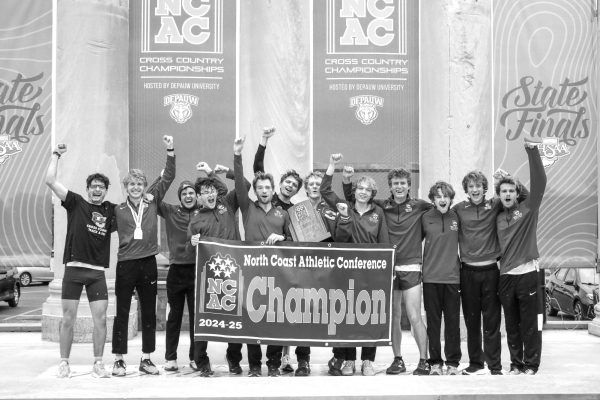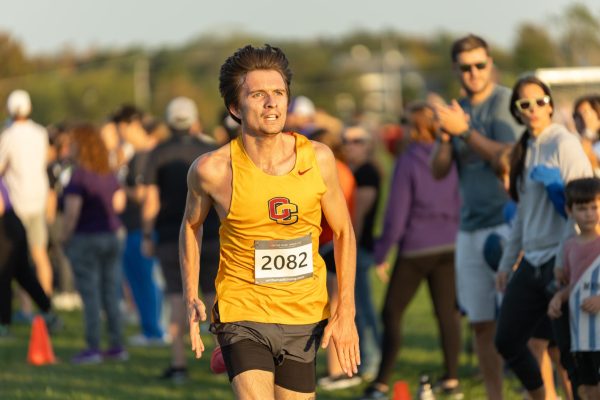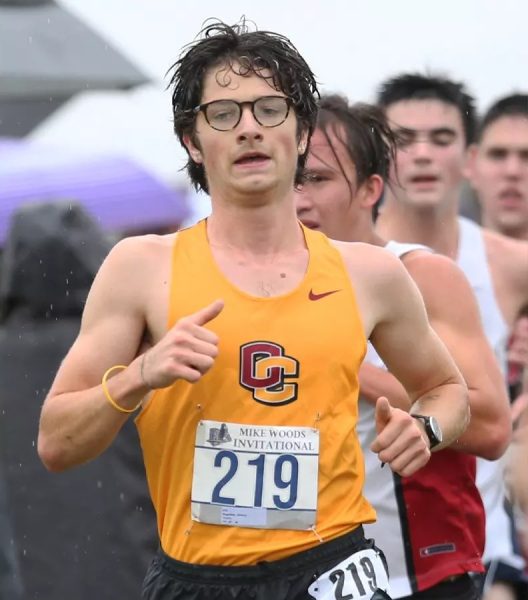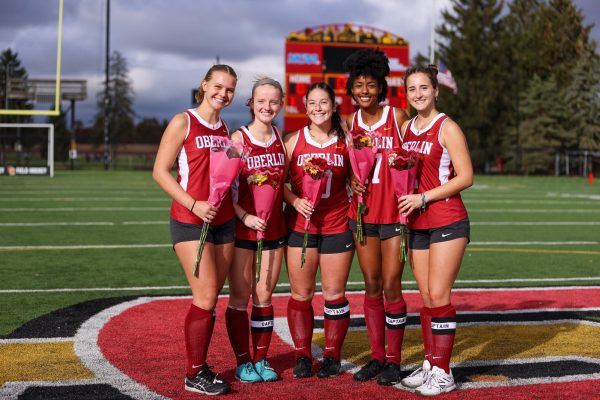We Keep Yeoing: Fantastic First-Years and Where to Find Them
In the shadow of Cleveland, Ohio, tucked away in the cornfields, lies a small town and one of the nation’s premier academic institutions, Oberlin College. But you already knew that. What you didn’t know was that the College’s indomitable track and field and cross country team found innovative ways to continue competing and to incorporate a whole new class of athletes into the fold. On the track and field and cross country teams, first-year students have faced challenges as students, as athletes, and as people, but their coaches and teammates have been there to catch them when they fall. This is We Keep Yeoing: Chapter Three.
For student-athletes, the recruitment process is both one of the most exciting and one of the most stressful events of their athletic careers. With college coaches and players emphatically professing the quality of their program, it can be hard to discern what is true and decide which school to attend.
College first-year and cross country athlete Eliza Medearis remembers how her visit to Oberlin changed everything.
“I came to visit Oberlin not really knowing what to expect,” Medearis said. “But the girls took me on a run through campus and showed me around and told me about their classes and Oberlin life in general. I felt so accepted as a part of the community, despite not even going to the school yet. … On the drive back home [from Oberlin] I kept thinking about how much I missed the people I’d spent less than three hours of my life with.”
College first-year and cross country athlete Sam Eig had a similar experience on his recruiting visit.
“The people here welcomed me with open arms,” Eig said. “Upon showing up to practice, I felt like they were genuinely excited to get to talk.”
Both Eig and Medearis were looking forward to starting their athletic and academic exploits at Oberlin, but the trajectory of their college careers was dramatically altered by the COVID-19 pandemic. Suddenly, gone was their season, gone was the expected academic experience, and gone was a quarter of their team as a result of the College’s three-semester plan, which mandated that third-years spend the semester away from campus. The acclimation period they were anticipating became significantly harder.
“It has definitely been odd,” Eig said. “I like to think that we, as a class, are making the most of it. It is hard to say whether Oberlin is what I expected it to be. Many upperclassmen have said that this is a completely different campus environment.”
Medearis has also noticed the difference in how she is looking at the semester compared to her upperclassmen teammates.
“The upperclassmen have been reminiscing on Oberlin before COVID and wishing they could go back to that, and I feel bad for them because they actually know what they’re missing out on,” Medearis said. “As a first-year, I know that this isn’t the traditional college experience, but I never got to go to Oberlin pre-COVID, so I’m just enjoying the new experiences without much regard to how they should be or what they could have been.”
Assistant Track and Field Coach Ben Wach has noticed how both first-year athletes and the older athletes have adjusted to the new normal. He thinks that both have done an incredible job making the best out of the situation.
“One interesting thing is that the COVID challenges are new to everyone,” Wach said. “There’s no hierarchy to lean on to find the problem-solvers. [That said], this track and field team is the most welcoming group of people I have ever been around, so it’s totally unsurprising that the first-years are already a [part] of the fabric of the team. Obviously, it’s taken a little more intentionality to make that happen while keeping everyone safe, but intentionality in inclusion is a major strength of the group.”
All things considered, Director of Track and Field and Cross Country Ray Appenheimer is proud of the way the first-years have assimilated into the team and of how well the team has welcomed them.
“They have been awesome,” Appenheimer said. “Our first-years are in training groups with our returning student-athletes, and I suspect an outsider would not be able to tell who was who.”
While the team has provided a strong community, staying active and driven athletically has also been important for the first-year students.
“I definitely miss competing and going to meets, but as a first-year I feel like I have to work hard to impress the coaches and establish good relationships with my teammates, so that’s been motivating me through workouts,” Medearis said. “Honestly it’s been amazing, and I feel so strong right now thanks to the help of my amazing coaches and teammates.”
Eig has also been proud of his work so far this semester and attributes his growth to the team’s training schedule.
“Training has been consistent and steady,” Eig said. “We are not training to peak right now, which has made it easier to recover for each following day.”
The first-years’ hard work is paying off, and their coaches are taking notice.
“We have been very pleased with how they have taken to the training and with how they have been progressing,” Associate Head Cross Country Coach Izzy Alexander said. “There is a lot of talent with this first-year class, and it will be exciting to watch as they continue to develop this year.”
As a result of their seamless integration into the team, both as people and as athletes, the coaching staff has high hopes for the first-year class.
“To be blunt, my expectations for the first-years are very high and high with good reason,” Wach said. “They’ve shown themselves to be exceptionally skilled and engaged. For this year, that means that it’s imperative that they carry on the great habits they’ve already built. … For the future, it means that they’ll be training to be better than they’ve been before. If they continue to put in the kind of effort that they’ve shown for the last six weeks for the next three years, I expect that they can leave Oberlin as extremely decorated scholar-athletes.”
Alexander agrees that the number one goal for the first-years at this time is to continue building good habits to carry with them into the future.
“Ultimately, the thing we care most about is that they are developing good habits,” Alexander said. “That they are figuring out how to manage their time, that they are being diligent with their schoolwork, that they are working hard and being good teammates and classmates, that they are taking care of themselves and prioritizing sleep, their mental health, and their physical health. If they are able to develop those habits, their success in college and beyond is assured.”
For the first years, the community provided by the track and field and cross country teams has assisted them in adjusting to college and coping with the lifestyle dictated by COVID.
“Cross country has undoubtedly helped,” Eig said. “Without practice to go to daily, I would spend way too much time in my room and feel sluggish all the time. And having a group that I can always turn to helps the bouts of loneliness everyone deals with at some point.”
Even though acclimating to life at the College has been easy for Medearis, she is quick to direct praise toward her coaches and teammates for her smooth transition.
“I think the team has been the best thing about college during COVID because I know that, despite these strange and unpredictable times, the team is always going to be there for me,” Medearis said. “I’ll always have them and running, even if the world is in chaos.”
The Review will continue to follow the track and field and cross country teams as the semester progresses. Stay tuned for the next installment of We Keep Yeoing to see a glimpse into teamwork and community in this bold and unprecedented time…









